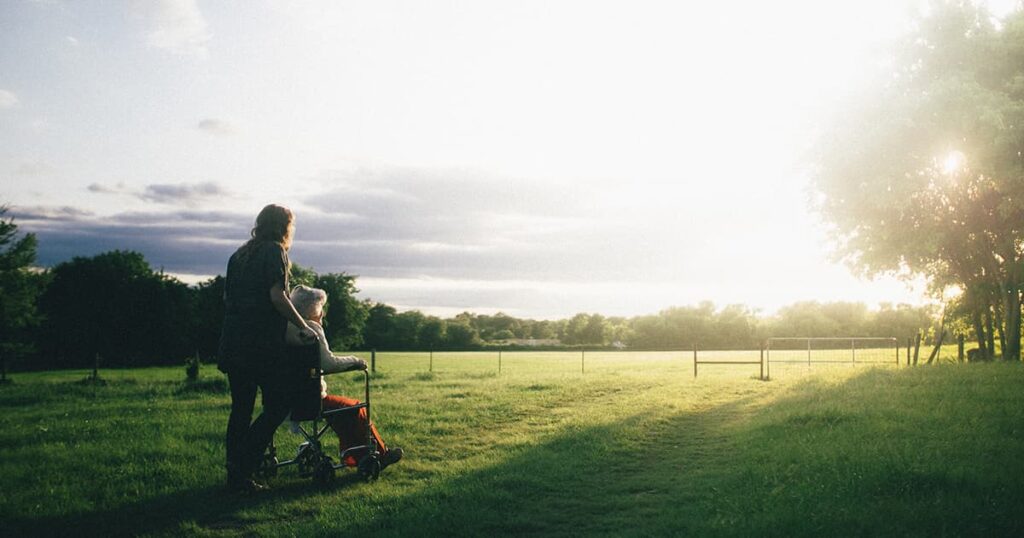
By Karen Hooker
Many of us will be caregivers to family members who are not young children at some point in our adult lives. For most, that is being a caregiver to a parent or a spouse. Researchers know a lot about the caregiver role, and we know people feel underprepared for taking on this common life role.
Here are three key things to consider to ensure both healthy aging – and healthy caregiving:
Prepare to care
Have conversations with family members long before the time comes when transitions are necessary. It is much easier to facilitate these conversations when they are perceived by all parties as far in the future. Plans may change over time, but revisiting plans to make adjustments is much easier than having the first conversation with your parent about where they might like to live when she is being discharged from the hospital after a life-changing health event.
Family caregiving for people with chronic illness is common, and Oregon has long been on the vanguard with innovative options for long-term care other than nursing homes. It is hoped that increasing the use of technology by older adults within their homes will allow people to age in place so they may never have to move to a child’s home, assisted living or nursing home.
Family caregivers need support
Caregiving is so often characterized as a burden, and this negative perspective is harmful. Recent research shows many positive outcomes from caregiving, including feeling increased mastery and purpose in life, deepening relationships, and acting as a model for their children. However, longtime intensive caregiving, such as for people with dementia, puts one at risk for depression and social isolation. Caregivers under these conditions sometimes feel that caregiving has encroached on all areas of their lives. Caregiving stress can also cascade into other areas, such as financial stress and affording long-term care when the time comes, as well as job stress due to taking time off for doctors’ appointments.
It’s this stress, which builds over time, that can be damaging. We need to provide more support for families, such as increased adult day services and respite care. Organizations such as the Alzheimer’s Association and AARP are advocating for more family caregiving support.
Reframe aging
Aging, both at the personal and societal level, is relatively new historically. There has never been so many people living into old age, and the trend is worldwide and will continue. We are in the midst of creating what it means to age well, and many studies have found that people are happier in later life than they are at younger ages. Yet, for the last decade there have been alarmist headlines of the approaching “silver tsunami” and what I call “the doom and gloom of the baby boom.”
What we don’t emphasize often enough is that most of us remain relatively healthy and productive for much of our later years. For example, we know the average caregiver is someone in their early ’60s, and older adults are starting new businesses at a rate higher than other age groups and serving in “encore” careers that benefit society. We know that ageist stereotypes are damaging for older adults and that those who have negative views of aging, even at a young age, are more likely to experience poor health and even die earlier than those with more positive views. Our negative attitudes toward aging can become a self-fulfilling prophecy for our own futures. In fact, research shows that when someone buys into negative stereotypes, they have heightened cardiovascular activity, including higher heart and blood pressure rates. And when people over 50 had more positive attitudes toward aging, they lived an average of 7.5 years longer.
Changing the way we see aging is more than just attitude – it can affect our health in later life.